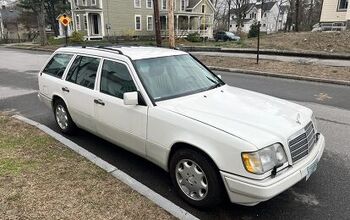Don't Expect a Landmark Court Case From the Uber Self-driving Car Death

It had all the hallmarks of a groundbreaking case, one that might define the hazy legal boundaries that exist at the dawn of the autonomous vehicle age. Instead, a settlement.
The death, earlier this month, of 49-year-old Elaine Herzberg at the self-guided hands of an Volvo XC90 operated by Uber Technologies Inc. in a Phoenix suburb immediately sparked questions of who was at fault. The company operating the pilot project? The automaker that supplied the vehicle for conversion to autonomous drive? The suppliers of the sensors and software needed to turn the SUV into a robot? Road and light conditions? The pedestrian? Or, perhaps, the human occupant whose eyes weren’t on the road prior to impact?
Questions still swirl around why the Uber vehicle’s sensors didn’t recognize the woman crossing a darkened highway with her bicycle, but we won’t hear them answered in a courtroom.
Herzberg’s family has reportedly settled with Uber, thus preventing a drawn-out legal battle. Neither Uber nor the law firm representing Herzberg’s husband and daughter have commented on the settlement or disclosed the sum. To them, the matter is closed.
What’s not over is Uber’s self-imposed testing ban and the ongoing pile-on from suppliers, rivals, and lawmakers. Arizona Governor Doug Ducey issued a stern rebuke earlier this week, claiming Uber had not upheld the safety standards he expected after declaring his state wide open for autonomous testing.
Velodyne, the supplier of the lidar technology that was supposed to see objects in the dark, claims the failure is on Uber’s end, pointing to faulty software. Aptiv, which supplies Volvo with radar and cameras for production vehicles, distanced itself from the issue by claiming Uber disconnected those devices in favor of its own. Even Mobileye — a chip supplier to Activ — said the software on a stock Volvo XC90 should have been able to notice Herzberg as she crossed the road. To prove its point, the Intel subsidiary tested its products against the crash video. Sure enough, it recognized the pedestrian before the fatal impact.
While Uber was able to quickly settle the matter with the deceased’s family, it awaits findings of investigations launched by the Tempe Police Department and the National Transportation Safety Board. These probes should identify the source(s) of the failure. Meanwhile, automakers and tech companies alike wait to see what becomes of their bold new frontier in mobility.
[Source: Reuters]

More by Steph Willems
Latest Car Reviews
Read moreLatest Product Reviews
Read moreRecent Comments
- Peter Buying an EV from Toyota is like buying a Bible from Donald Trump. Don’t be surprised if some very important parts are left out.
- Sheila I have a 2016 Kia Sorento that just threw a rod out of the engine case. Filed a claim for new engine and was denied…..due to a loop hole that was included in the Class Action Engine Settlement so Hyundai and Kia would be able to deny a large percentage of cars with prematurely failed engines. It’s called the KSDS Improvement Campaign. Ever hear of such a thing? It’s not even a Recall, although they know these engines are very dangerous. As unknowing consumers load themselves and kids in them everyday. Are their any new Class Action Lawsuits that anyone knows of?
- Alan Well, it will take 30 years to fix Nissan up after the Renault Alliance reduced Nissan to a paltry mess.I think Nissan will eventually improve.
- Alan This will be overpriced for what it offers.I think the "Western" auto manufacturers rip off the consumer with the Thai and Chinese made vehicles.A Chinese made Model 3 in Australia is over $70k AUD(for 1995 $45k USD) which is far more expensive than a similar Chinesium EV of equal or better quality and loaded with goodies.Chinese pickups are $20k to $30k cheaper than Thai built pickups from Ford and the Japanese brands. Who's ripping who off?
- Alan Years ago Jack Baruth held a "competition" for a piece from the B&B on the oddest pickup story (or something like that). I think 5 people were awarded the prizes.I never received mine, something about being in Australia. If TTAC is global how do you offer prizes to those overseas or are we omitted on the sly from competing?In the end I lost significant respect for Baruth.


































Comments
Join the conversation
Smart move. Get this out of the news, so the industry can move on. If someone who never cared enough about her mother to get her off the street, winds up with a payout, so be it. We all realize that this lawsuit had nothing to do with the woman that died, don't we?
99% sure the problem is with Uber.